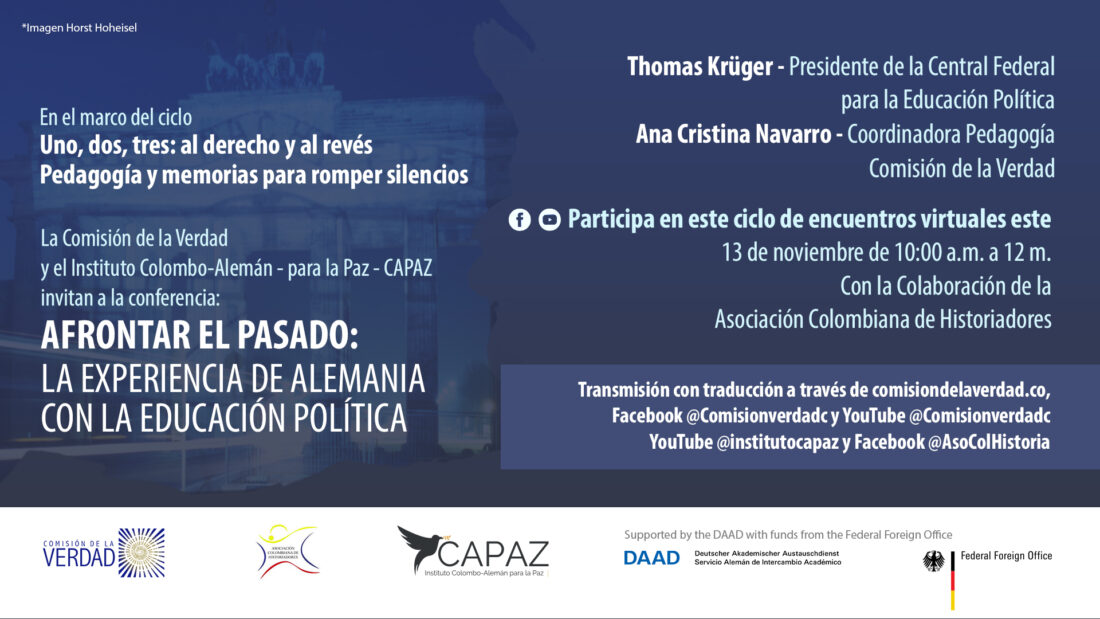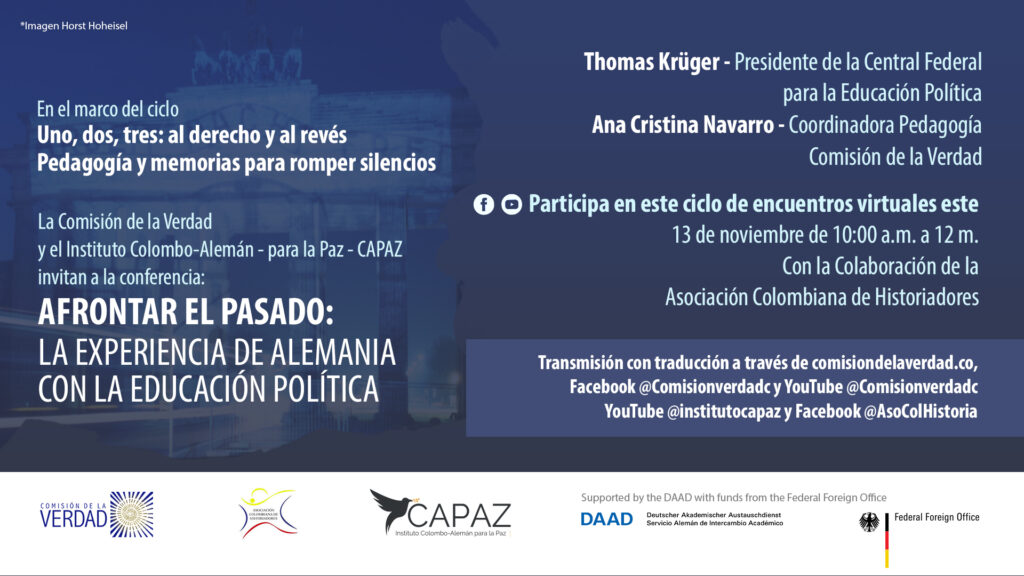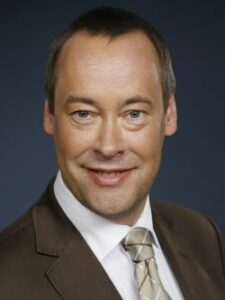
CAPAZ and the Colombian Truth Commission host meetings on education and memory

Live-Streaming:
Youtube CAPAZ: Instituto CAPAZ
Truth Commission: https://comisiondelaverdad.co/ | Facebook and Youtube @Comisionverdadco
The Colombian Association of Historians Facebook page: @AsoColHistoria
Alemania and the teaching of recent history
Guest speaker, Thomas Krüger, President of the Federal Centre for Political Education will give his talk entitled: “Facing the past: Germany’s experience with political education”, in which he will share strategies and actions implemented in his country to address the past, aimed mainly at young audiences. The conversation with Mr. Krüger will be guided by educational coordinator at the Truth Commission Ana Cristina Navarro.

Photo: Bundeszentrale für politische Bildung/bpb
How did German society overcome its silence in the face of the events of the Second World War and speak openly about its past, inside and outside the classroom? This is how Thomas Krüger explains it, based on the contribution of political education to this discussion:
“Political education does not convey “one” truth or the “right” interpretation of history, rather, it takes up social debates about the past and gives them new impetus. To counteract the relativisation and concealment of German crimes during the Second World War, [the bpb] draws on information based on [substantiated, supported] facts that render tangible the many ways in which Germans participated in National Socialism [,] or also the perspective of the victims. This allows students to think critically, ask questions, and investigate on their own”.
You may also like: Educación política ciudadana en Alemania: video-columna de CAPAZ con Thomas Krüger (subtitules in Spanish)
The event will be attended by CAPAZ Academic Director and Professor of Peace Studies at JLU Giessen, Stefan Peters; Tatjiana Louis, Professor and Head of the Department of Cultural Studies at Universidad de los Andes; and Alfons Kenkmann, renowned Professor of Historical Didactics at the University of Leipzig.
A dialogue with Latin America
The online cycle will end on Thursday, November 26, 2020, at 9:00 a.m. (Colombia time) with a round table discussion entitled: “Truth, memory and intercultural education in Latin America”. Participants will highlight contributions from Argentina, Chile and Peru on learning from the Latin American experience with the legacies of truth commissions, as well as the need for and importance of intercultural, anti-racist and gender-based education policies.
María Paula González, Professor of history at Universidad Nacional de General Sarmiento (Argentina); Andrea Riedemann, postdoctoral researcher at the Centro de Estudios Interculturales e Indígenas (CIIR) at the Pontificia Universidad Católica (Chile), and José Carlos Agüero, historian, poet and researcher on memory and political violence, will be the guest speakers at this last event.
Download the press release including the cycle programme (.pdf, in Spanish)
Further information: juliana.gonzalez@www.instituto-capaz.org | Press: claudia.maya@www.instituto-capaz.org
(NW: Claudia Maya. English: Tiziana Laudato)



